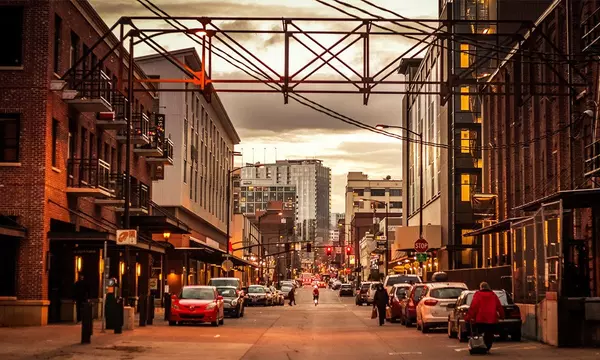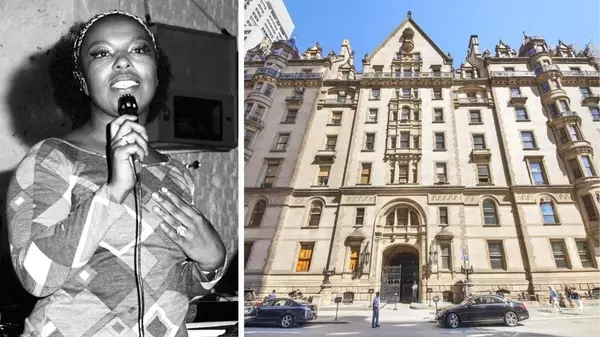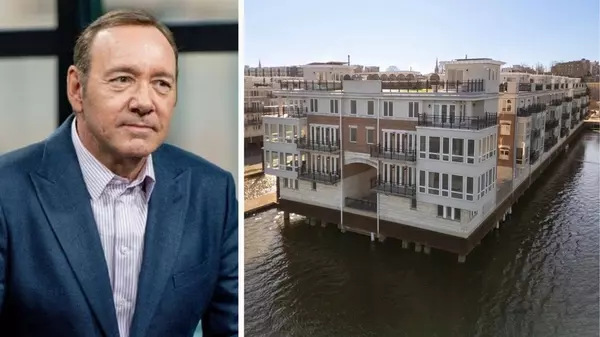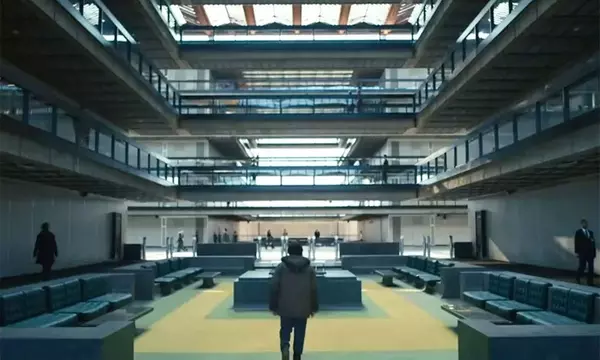America’s Biker Capital: Paradise for Riders, Hell for Leaders

SCOTT OLSON/GETTY IMAGES
Four years ago, this small city seized international headlines by holding its annual biker rally, a bacchanal drawing nearly 500,000 people to the Black Hills, while much of the country was on Covid-19 lockdown.
“One of the most iconic celebrations of freedom in the United States of America,” South Dakota Gov. Kristi Noem has called the 10-day event.
But even in a town known for its wild side, someone has to keep the lights on. Even a rebel needs a clause or two.
Behind the scenes, that pivotal, nearly unanimous council vote to hold the rally masked deep divisions that exploded in recent months into battles over how Sturgis should best govern itself. Sturgis City Hall, aptly situated on Harley-Davidson Way, has seen one rumble after another, raising a question: Is this the toughest job in politics?
The longtime city manager relinquished his post about 18 months ago as citizens mounted an effort to eliminate the position entirely. Then came this year’s cascade of departures: the mayor, acting mayor, city attorney and finance director along with other department heads and City Council members—including one who walked out during a public meeting in October.
Sturgis’s tumult mirrors broader struggles in small-town America: the mixed blessings of tourist economies, the challenges of revamping local government, and clashes between newcomers and the old guard.
Council-meeting conflicts spilled into social media, where Sturgis factions faced off and sparked a lawsuit that would reach the state Supreme Court.
“It’s the stuff that movies are made of,” said Angela Wilkerson, 43 years old, an enforcement officer for the state gaming commission who was appointed acting mayor in March and resigned in October. The New Hampshire native said her administration was stymied by a cabal of mostly lifetime Sturgis residents, including downtown business leaders, former city employees who run sometimes salty social-media sites, and the Jackpine Gypsies Motorcycle Club.

Joe Barrett/WSJ
“I call that a narcissist. It’s everyone else’s problem,” said the current acting mayor, Kevin Forrester, a 57-year-old Sturgis native who runs a trail-building nonprofit.
“Someone needs to do a drama meter for towns,” said Tammy Bohn, 61, co-owner of Sturgis Guns, who helps run a Facebook page called Sturgis Citizens for Change and has been involved in lawsuits against the city and its leaders. “It’s such a mess.”
Many locales have a golden goose—Halloween in Salem, Mass., spring break in Fort Lauderdale, Fla.—that have put them on the map and created headaches.
Tucked in the midst of scrubby hills an hour’s drive north of Mount Rushmore, Sturgis (population 7,000) hosts what is often called the world’s largest motorcycle rally. The annual summer festival of bikers, chrome and rubber floods the town with tax revenue and corporate sponsorships but distorts the local economy: Many downtown storefronts, large bars and concert venues sit empty for much of the year. Real-estate prices on Main Street are so high it is tough to start businesses catering to local needs.
By 2007, some residents had tired of hosting an event that demanded everything from extra police to porta-potties—with little to show for it. So voters approved hiring a city manager, a CEO of sorts, to maximize rally benefits.

Joe Barrett/WSJ
In 2011, Daniel Ainslie, then a 31-year-old Californian with an M.B.A., became Sturgis’s second city manager. He remembers sheepishly telling one of the people who interviewed him that he had no interest in motorcycles, hunting—or even fishing.
For years, Ainslie, who started a swim team in town with his wife, thrived as the council backed his efforts to bring professionalism to city government.
But his push for change would ultimately collide with local tradition on a steep red-clay hill outside town. That is where hill-climb competitions are run by the Jackpine Gypsies Motorcycle Club, local royalty whose original members founded what became the Sturgis rally in the 1930s. The Gypsies own the large parcel, which also has a motocross track, a flat dirt track and a woodlands trail.
The conflict kicked up after the city moved to annex the Gypsies’ property, arguing that they received Sturgis services without paying city taxes. The Gypsies countered that they paid more than other users for such things as city water, not to mention the taxes brought in by their events, and that red tape and new taxes postannexation would sink the club.
When negotiations failed, the city forced an involuntary annexation.
That is when the Gypsies mobilized, collecting enough signatures to place a referendum on the ballot to reverse the annexation. In August 2020, the Gypsies won, sparking a wider rebellion.
“I think we showed everybody that you can fight City Hall,” said Jackpine Gypsies Chairman Brett Winsell, 56, mentioning several other successful petition drives that followed.
In December 2021, Ainslie’s critics took an even bigger swipe at him, pushing for Sturgis to hold a referendum to eliminate his position entirely and return the city’s CEO powers to the mayor.
When city officials rejected the petition, a legal fight ensued, landing before the South Dakota Supreme Court. Ainslie didn’t wait for a ruling.
He resigned in 2023, citing social-media campaigns that made life unbearable for his family and a lawsuit brought by activists—ultimately unsuccessful—to claw back years of his salary.
This past February, the court ordered the referendum on to the ballot. Within days, Mayor Mark Carstensen stepped down, and the council elevated its vice president, Wilkerson, to acting mayor in March.
The job included such traditions as leading the “Mayor’s Ride” to the Stone House Saloon (participants received commemorative bottles of Jack Daniel’s signed by the mayor). Wilkerson also launched the 84th Sturgis Motorcycle Rally, which featured 470,987 vehicles, 134 DUI arrests in town, around 50 weddings, and a lost-and-found that took in 27 pairs of glasses, a set of false teeth and one prosthetic leg.

Tara Weston for WSJ
Wilkerson’s tenure soon got bumpy. As she and city staff prepared the 2025 budget, they discovered a looming shortfall. Municipal sales-tax revenue was lower than anticipated, while expenses rose. By August, she requested 10% cuts across all departments.
The budget crisis stirred up simmering tensions. Critics seized on Wilkerson’s outsider status—she had been appointed by a council now mostly voted out, and her East Coast pedigree made for an easy target.
“Not being a native of South Dakota has given her some different opinions of things,” City Councilman Jim Thompson told local TV.
When the city canceled its fall cleanup week, blaming staff shortages, one resident captured the mood in a post on the town Facebook page: “If it don’t have to do with the Rally, it isn’t important to this city.”
In September, Wilkerson got a frantic call while vacationing: The council had convened an emergency meeting.
From her hotel room in Iceland, Wilkerson called in and thwarted a council attempt to oust the city attorney—a power reserved for the mayor.
But it only delayed the inevitable. Wilkerson, facing a recall petition, resigned Oct. 21, and the city attorney was forced into retirement on Nov. 1. In her farewell letter, Wilkerson condemned the “underhanded tactics” and “toxic environment” she said had driven away city staff.
On the evening of the day Wilkerson resigned, the council held its first meeting without her. After the pledge, prayer and talk of a coming chili cook-off, there were public comments. Someone said Sturgis’s next mayor must be elected, not appointed. Other speakers blasted plans in Wilkerson’s budget to cut the job of the city’s communications coordinator.
“Offensive,” agreed Councilman Mike Bachand, who soon raised his hand to add a comment. He methodically recited a list of departed City Hall professionals, finally adding himself to the exodus. He was resigning, effective immediately.
“I’ll be back, sitting out there,” he told the audience before getting up to walk out. “I’ll be here with a vengeance.”
Meanwhile, Forrester, the acting mayor, has moved forward with a $10.08 million budget that cuts staff positions to help pare $1.25 million in spending.
One big cut—$600,000—targets the city team that plans rally events. Forrester said Sturgis re-evaluated its return from sponsoring shindigs such as the Mayor’s Ride, Mayor’s Poker Tournament and Mayor’s Pub Crawl and might try to find new benefactors for some.
“We keep jamming money in the Rally Video Lottery Machine and hoping to get more back out than what we’re putting in,” he said. “It just wasn’t paying off.”
Wilkerson counters that most of those events were inexpensive and added to the experience for rally participants.
The city will hold a special election Jan. 7 to fill vacancies, giving Sturgis residents the chance to elect a mayor. Though it isn’t a job many seem to want.
Forrester is the sole candidate.
Categories
Recent Posts










676 N Michigan Ave. Ste 3010, Chicago, IL, 60611, United States
